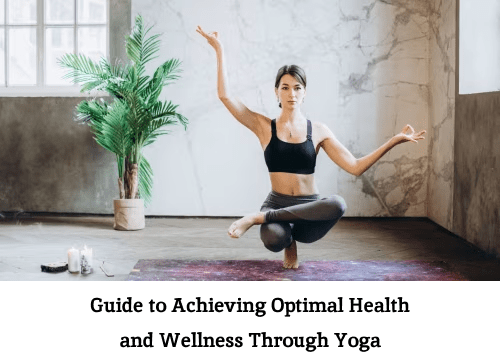Optimal Health and Wellness Through Yoga

In today’s fast-paced world, where stress and anxiety have become prevalent, yoga stands as a beacon of hope for achieving optimal health and wellness. The ancient practice of yoga transcends mere physical exercise; it embodies a holistic approach to achieving harmony between the mind, body, and spirit. Its benefits extend far beyond flexibility and strength, touching every facet of one’s well-being.
Understanding the Essence of Yoga
Yoga is not just a form of exercise; it is a lifestyle that promotes physical, mental, and spiritual well-being. Rooted in ancient Indian philosophy, yoga combines physical postures (asanas), breath control (pranayama), meditation, and ethical principles to create a comprehensive system for holistic wellness.
Exploring the Physical Benefits of Yoga
Enhancing Flexibility and Strength
The practice of yoga incorporates various asanas that stretch and strengthen muscles, enhancing flexibility and promoting a balanced musculoskeletal system. As individuals progress in their practice, they notice increased suppleness and improved posture.
Improving Cardiovascular Health
Certain yoga practices, such as Vinyasa or Ashtanga, involve dynamic movements that elevate heart rate, thus contributing to better cardiovascular health. Moreover, yoga aids in reducing blood pressure and improving circulation, benefiting the heart and overall well-being.
Boosting Immunity and Detoxification
Through specific asanas and breathing techniques, yoga supports the body’s natural detoxification processes, flushing out toxins and bolstering the immune system. This leads to improved overall health and vitality.
Mental and Emotional Well-being with Yoga
Stress Reduction and Mental Clarity
The practice of yoga incorporates mindfulness and meditation, providing practitioners with tools to manage stress effectively. Yoga encourages the release of stress hormones, promoting mental clarity and inner peace.
Enhancing Emotional Resilience
Regular yoga practice cultivates emotional resilience by fostering a sense of self-awareness, acceptance, and emotional balance. It enables individuals to navigate life’s challenges with a calmer and more composed demeanor.
The Spiritual Aspect of Yoga
Connecting with Inner Self
Yoga delves into the spiritual realm, offering a pathway to connect with one’s inner self. Meditation and deep breathing exercises facilitate introspection, aiding in self-discovery and fostering a deeper sense of purpose and meaning in life.
Cultivating Mindfulness and Presence
The philosophy of yoga emphasizes living in the present moment, promoting mindfulness and awareness. This enables individuals to savor life’s experiences fully, fostering a sense of gratitude and contentment.
Incorporating Yoga into Daily Life
Establishing a Consistent Practice
To harness the benefits of yoga, consistency is key. By dedicating a specific time each day for yoga practice, individuals can experience gradual but profound transformations in their physical, mental, and spiritual well-being.
Tailoring Yoga to Individual Needs
Yoga is versatile and adaptable, catering to various fitness levels and individual needs. Whether one seeks relaxation, stress relief, or physical fitness, there’s a diverse range of yoga styles to suit different preferences.
Conclusion
In conclusion, the practice of yoga serves as a holistic approach to achieving optimal health and wellness. Its multifaceted benefits encompass physical fitness, mental clarity, emotional resilience, and spiritual growth. By integrating yoga into daily life, individuals embark on a transformative journey towards a healthier, more balanced lifestyle.
